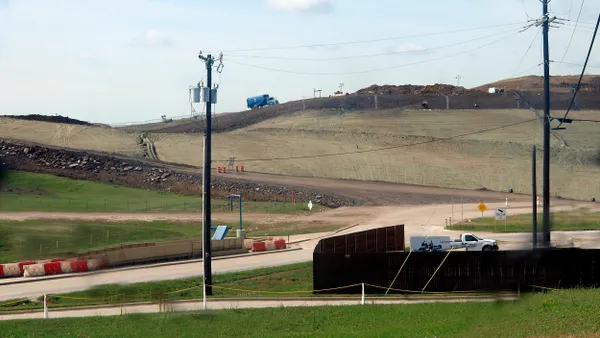Dive Brief:
- Duke Energy is requesting permits to bury about 2.2 million tons of coal ash at a lined landfill it will build at its W.S. Lee Steam Station in South Carolina. The request to South Carolina's regulators comes as the company works to remove nearly 1.4 million tons of coal ash from a pond at a plant in Anderson, SC that is closing.
- Duke will dry and store ash from two other ponds at the new landfill, according to spokeswoman Danielle Peoples. Specially designed synthetic and natural barriers, including capping of the site, are intended to prevent leaks. There will be groundwater monitoring for further safety measures.
- The Lee proposal falls under Duke’s plan to close ash ponds at six states, and is intended to provide means to safely store the ash at those sites. Public hearings and a review of the proposal are pending, with Duke planning to officially file for permits in October 2016.
Dive Insight:
The shutdowns of Duke’s ash-filled plants are a result of multiple violations that have led to groundwater contamination as well as structural breaches that resulted in other contamination risks, sparking public concern. Duke is taking action to address the issues—not just by closing troubled plants, but finding methods to safely store the ash waste.
To further ease unrest, Duke is keeping the public informed; notifying South Carolina regulators and residents near the Lee plant of plans to file for permits to bury the ash at Lee.
New federal standards now categorize coal ash as a solid waste rather than a hazardous material, but just the same, ash can pose serious problems if not properly stored and managed, as seen by the events prompting Duke’s current clean up measures and plans moving forward.
"Our first priority is ensuring the continued safety of our neighbors and our environment," said John Elnitsky, Duke Energy senior vice president of ash basin strategy, to the Charlotte Business Journal. "We’re using a science-based plan, industry-proven technology and advanced engineering to site and construct this fully lined landfill."









